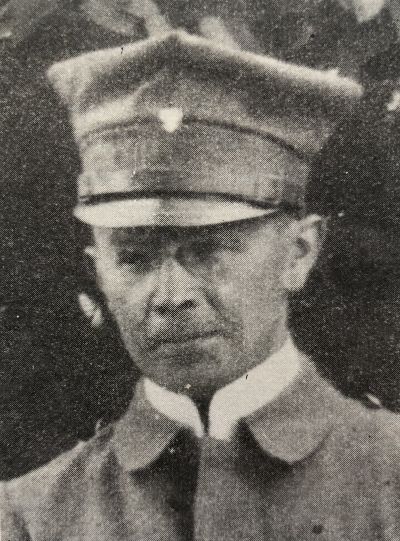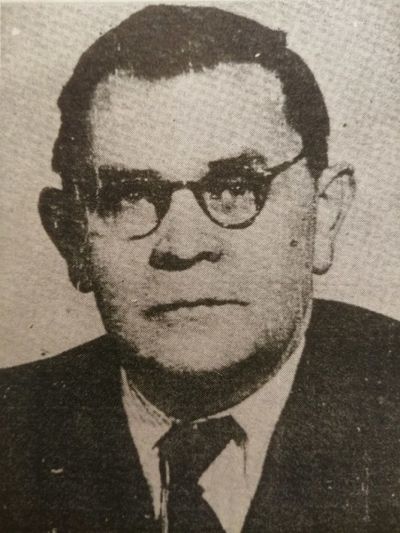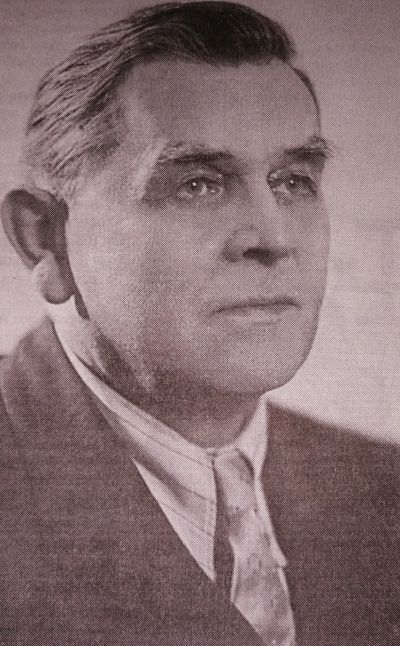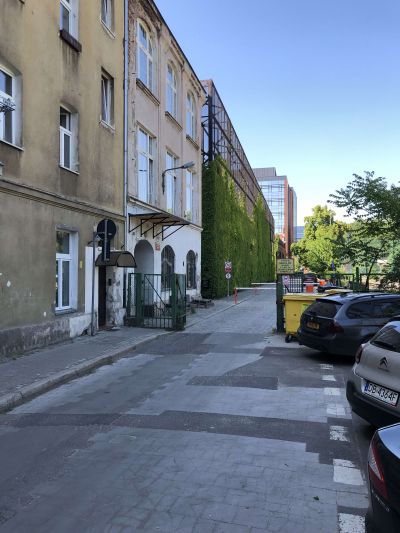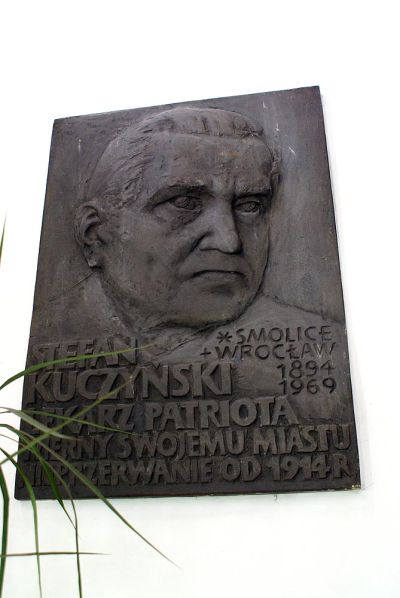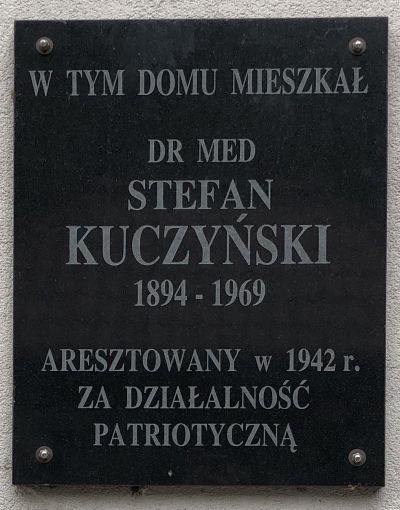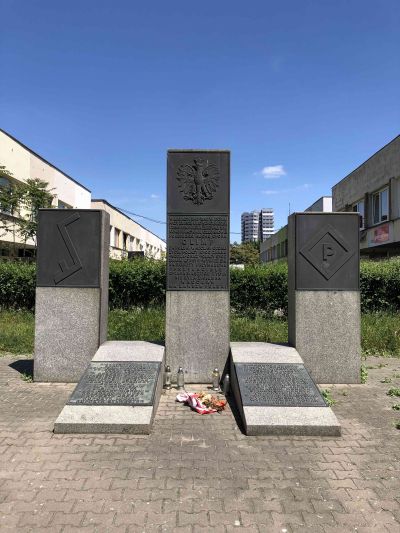Stefan Kuczyński (1894–1969). The “patriotic doctor” from Wrocław

On 18 June 1942, Kuczyński was arrested and forced to give up his medical practice. He was accused of having organised “activities of a highly treasonous nature”. The charges related in part to his collaboration with the “Olimp” organisation in Breslau, a Polish underground group founded in 1941 whose work focused on the integration of Poles, self-organisation and acts of sabotage. The trial was held nearly a year later. In the process, some of the charges were dropped. Kuczyński was released and was able to resume his medical work. During the war, he helped a group affiliated to the Polish Home Army in Kobylin called “Lotos”, which cared for sick Poles.
On 25 August 1944, as the Red Army advanced, Breslau, along with other German towns and cities, was declared a fortress. In January 1945, the situation changed, and preparations were made to defend the city. Stefan Kuczyński was assigned to two institutions: the practice for internal medicine in Wallstrasse 20/22 (today: Ulica Włodkowica) and the surgical supply station in the bunker in Posener Strasse (today: Ulica Poznańska). As the Red Army advanced further, the order was given to evacuate the civilian population. As a qualified doctor, Kuczyński was required to remain in the fortress to provide medical assistance. His wife and children were ordered to leave the city immediately. However, he succeeded in sparing his family the ordeal of having to flee the city in freezing temperatures of minus 20 degrees.
During the fighting around Breslau, he helped those Poles who remained in the city. One of the many camps that remained in the city despite the fighting was on Bergstrasse (today: Ulica Góralska). The barracks held several thousand Poles who were constantly exposed to fire. Thanks to an intervention by the senior doctor of the fortress, and by using an excessive amount of bandaging material, Kuczyński succeeded in persuading the Germans that the prisoners in the camp in Bergstrasse needed to be evacuated. Since at that time, medical services in Breslau were in serious danger of collapsing, the defenders of the city felt that it would be better to move the prisoners to a safer location.
Stefan Kuczyński survived the bloody battles for the fortress and remembered the day when no more shots were heard in the city:
“Finally, the 7th of May arrived. Cries of victory could be heard all around the city. We saw the first Polish soldiers. On their helmets, there was a white eagle, a holy emblem for us. We greeted them with bated breath and suppressed sobs. The ‘iron gate’ which had blocked the path to our new tasks ahead had been broken open. We had to extinguish the fire that had spread, to battle against typhus and cholera, to find people places to live in the city, to assert law and order, and finally, to raise Polish Wrocław from the ruins.” (Festung Breslau, p. 57)
After the end of the war, Kuczyński was involved in the rebuilding of the healthcare system, and was among those whom we have to thank for the “raising of the city from the ruins”. In 1957, he was elected chairman of the Lower Silesian Society of Doctors (Stowarzyszenie Lekarzy Dolnośląskich). He was presented with honours including the Knight’s Cross of the Order of Polonia Restituta and the Rodło Medal. He continued to work in a district clinic until his death in 1969. In the words of Prof. Świderski, he had “more than repaid his debt to Marcinkowski for the scholarship for his entire medical studies”. (Doktor medycyny, p. 15)
Kacper Rosner-Leszczyński, May 2023
Bibliography
Bruziewicz-Mikłaszewska Barbara, Doktor Ludwik Stefan Kuczyński (1894–1969) i jego rola w międzywojennym Wrocławiu oraz odtworzeniu samorządu lekarskiego, in: Aktywność polskich lekarzy w dwudziestoleciu międzywojennym – w stulecie powołania Izb Lekarskich, ed. Bożena Urbanek, Magdalena Paciorek, Maria Ciesielska, Warszawa 2020, p. 89–94.
Gleiss Horst, Breslauer Exodus 1946. Beiträge zur Dokumentarchronik einer Stadt und ihrer Menschen, Rosenheim 2003.
Konieczny Alfred, Polska grupa konspiracyjna “Olimp” w wojennym Wrocławiu, Wrocław 1989.
Kuczyński Stefan, Festung Breslau, in: Trudne dni (Wrocław 1945 r. we wspomnieniach pionierów) Vol. 1, ed. by Mieczysław Markowski, Wrocław 1960, p. 43–57.
Kuczyński Stefan, Gdy Polska odzyskała niepodległość, in: Do nich przyszła Polska, ed. by Anna Zawisza (2nd edition), Wrocław 2018, p. 157–171.
Świderski Gerwazy, Doktor medycyny Stefan Kuczyński – legendarna postać Wrocławia (1896−1969), “Medium. Gazeta Dolnośląskiej Izby Lekarskiej” No. 10 (207) 2007, p. 15.
Zawisza Alicja, Studenci Polacy na Uniwersytecie Wrocławskim (1918–1939). Katalog zachowanych archiwaliów, Wrocław 1972.
Online publications
https://krotoszyn.naszemiasto.pl/nasi-powstancy-dr-ludwik-stefan-kuczynski-ze-smolic-zdjecia/ar/c1-7600819 [Accessed: 16/5/2023]
